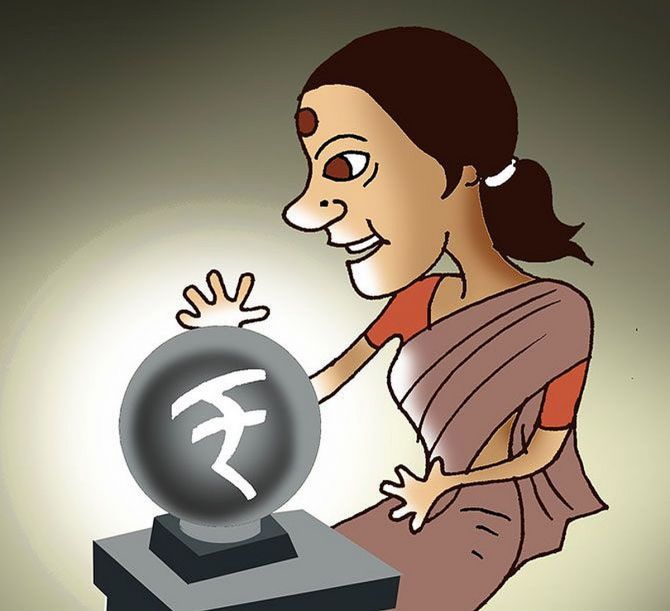Cheque payments will be safer; the limit for contactless card transactions hiked.
Bindisha Sarang reports.

Several rules that have a bearing on your financial life changed on January 1, 2021.
Adapt to them at the earliest so that you are able to benefit from them.
Failure to do so could result in lost opportunities and, in some cases, even a fine.
Contactless payment limit hiked
Starting January 1, the limits for contactless card transactions and e-mandates for regularly occurring transactions through cards and the Unified Payment Interface have changed from Rs 2,000 to Rs 5000.
T R Ramachandran, group country manager (India and South Asia) at Visa, says: "The Reserve Bank of India's announcement comes at an opportune time. 2021 is expected to be pivotal for contactless payments growth as usage accelerates among merchants and consumers."
Users will now be able to wave their contactless cards across more categories.
"Food, grocery and fuel were the primary categories that drove contactless transactions. With the upward revision of limits, customers can use this facility across other categories like health care, apparel, and restaurants,” says Sanjeev Moghe, executive vice-president and head (cards & payments), Axis Bank.
Cheque payment gets safer
From January 1, RBI started implementing its 'positive pay system' (PPS) cheque initiative.
The PPS requires cheque issuers to submit cheque details like the beneficiary name, the amount, and the cheque date to the drawee bank through channels like SMS, mobile banking, Internet banking, and ATM.
This system will be available for all account holders issuing cheques of more than Rs 50,000 and will be mandatory for cheque amounts of Rs 5 lakh and above.
"The PPS will introduce an additional layer of security and reduce instances of frauds and tampering of high-value cheques," says Naveen Kukreja, CEO and co-founder, Paisabazaar.com.
Multi-cap funds allocation to change
Sebi's new rules for multi-cap equity funds have made it mandatory for them to have at least 75 per cent of their allocation in equities and equity-related instruments, with minimum of 25 per cent allotted to each category: Large-, mid- and small-cap stocks.
Earlier, most multi-cap funds were biased towards large-cap stocks and gave similar returns as large-cap funds.
"Sebi has tried to ensure that multi-cap funds offer true diversification across market caps," says Harsh Jain, co-founder and COO, Groww. "Investors looking for diversified investment in equities can opt for them."
FASTag to become compulsory
All four-wheelers will have to have FASTag from January 1, 2021.
With FASTag, drivers do not have to stop at toll plazas because the toll fee gets automatically deducted from their account.
Making FASTag compulsory will pave the way for its wider application, such as paying for parking, fuel, and inter-state movements, and e-challan.
GST compliance gets easier
GST assessees who have an annual aggregate turnover up to Rs 5 crore will need to fill only four GSTR 3B forms instead of 12 in 2020.
NAV rules to change
From January 1, equity and debt mutual fund investors will get the purchase net asset value of the day when their money reaches the fund house.
At present, for investment up to Rs 2 lakh in an equity or debt fund, the NAV of the same day is given if the application is submitted before 1 pm.
"This change will impact investors who use cheques to purchase mutual funds," says Groww's Jain.
Rules for liquid and overnight funds have not changed.
LPG prices will change every week from January 1.
This could make your cooking gas bill more volatile but market-aligned.
UPI transactions will cost more.












 © 2025
© 2025